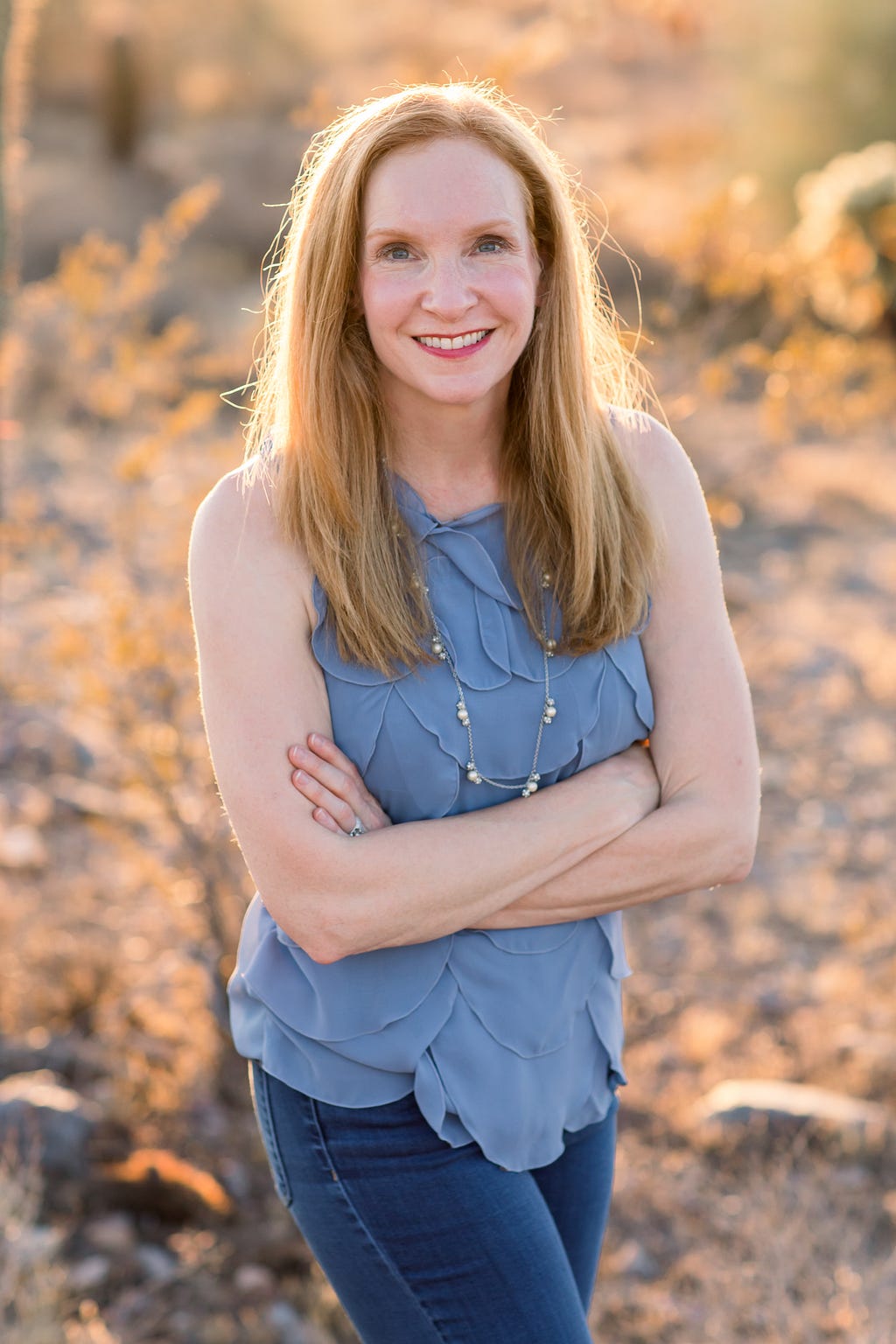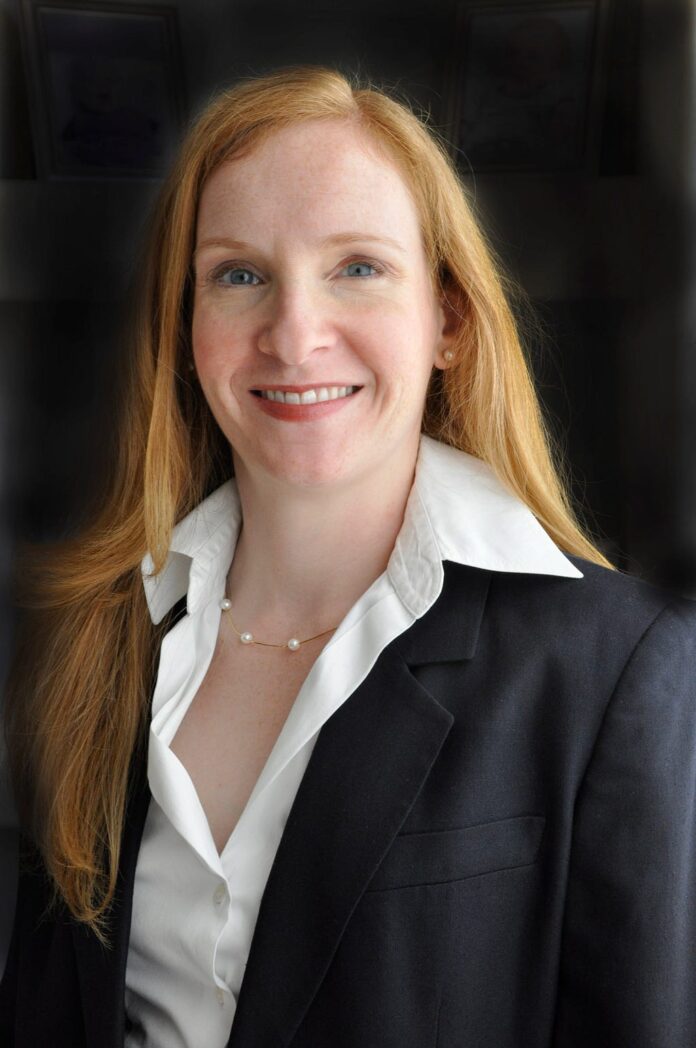Pamela Wirth Barnhill of Hello Health: 5 Things You Should Do To Become a Thought Leader In Your Industry
An Interview With Dina Aletras
Collaborate with other well-known leaders in the field you want to be known for to gain faster market acceptance. I did this when I contributed to other well-known published books and then later became my own published author with other contributing experts.
As part of our series about how to become known as a thought leader in your industry, I had the pleasure of interviewing Pamela Wirth Barnhill.
Pamela Wirth Barnhill is a Carnegie Mellon trained MBA, former public company executive, management consultant, author and health enthusiast. She became a thought leader in hospitality and more recently in health and wellness when she founded Hello Health with doctor formulated supplements following a neurodiversity diagnosis of her son and is dedicated to nutrition, education and building a marketplace with community to help support more people — particularly those with Neurodiversity, Autoimmune and Autism syndromes that need nutrition, supplements, lab testing, telemedicine and more.
Ms. Wirth Barnhill enjoys health and wellness, traveling, family and helping others, specifically enabling people to feel better from the inside out. She combined these passions along with her experience while living in Europe and Asia with doctors and other families to write “Saving My Son”. Ms. Wirth’s consulting, life experiences and attention to detail has allowed her to work with a number of purpose-led and mission-driven people and organizations.
Thank you for taking the time to speak with us! Our readers are eager to learn more about you. Could you provide some background information about yourself?
Absolutely! As the first female on other side of my family to attend 4-year university (let alone graduate school, work abroad, be on magazine covers, author a book…, I learned early to push myself, ask questions, surround myself with smart people and be open-minded. Though I wasn’t sure what I wanted to study, I chose economics and mathematics believing that if it was hard and taught me how to think and solve problems, I would likely be able to translate this into later opportunities. Thankfully, that has been true and I have been able to have roles in a variety of industries including semiconductors, electronics, consulting, hospitality, real estate, CPG and health. Currently I’m fortunate to have roles as Founder as well as Fractional CEO and COO.
What establishes you as an authority on thought leadership? Could you briefly share your expertise with our readers?
Thought leadership comes in so many different forms.
My expertise in hospitality started with becoming an expert in running a hotel from front desk to later as President and COO of a publicly traded company that owned/operated hotels as well as starting and scaling a global ecommerce division. This allowed me to be on industry magazine covers, contributing industry expert, speak at conferences, influence the industry and mentor upcoming leaders.
My expertise in health and wellness started with solving my son’s major health problem, then as a contributing author to 2 books then becoming a published author of my own books, then being an expert guest on podcasts and hosting my own podcast as well as an invited conference guest.
These thought leadership roles have now allowed me the opportunity to showcase the ability to start and scale organizations and become a thought leader in strategic planning, operations and change management to lead as a Fractional CEO and Fractional COO.
Can you recall a funny mistake you made when you were first starting out? What lesson did you learn from it?
There are so many mistakes and lessons learned and some are funnier than others. From initially being surprised when I received my first industry accolades to being unsure on how to transition careers, the lessons are endless. The funniest thing for me in retrospect is I wish I had more confidence from the beginning in myself. While it can be scary to transition into multiple thought leadership roles over your career, it taught me how important it is to stay positive, trust yourself and surround yourself with good people.
What are the most significant disruptions you foresee in your industry over the next five years, and how can businesses adapt to these changes?
I prefer to look 3 years out at a time as 5 years is a long horizon with so many variable unknowns; however, there will be a lot of change in employee and customer demographics as well as automation in driving demand and greater efficiencies. Those that are flexible, open to learning and can test, change, focus and iterate quickly, will thrive.
Can you explain the benefits of becoming a thought leader? Why is it valuable to invest time and resources into this?
Becoming a thought leader can provide a number of benefits personally and professionally depending upon if someone is an employee or owns the organization. If someone is an employee, taking the time to invest in themselves allows them to feel more connected, fulfilled and makes them a stronger candidate for future opportunities. If someone owns the organization, taking the time to invest in themselves allows them to be an expert for the organization and drives more customer and industry engagement and ultimately more business.
Can you share an example of a significant challenge you faced in your career and how you leveraged innovative thinking to overcome it?
Like most people, I have faced significant challenges in my career both as an employee and as a founder. As an early employee, I was overly excited to scale the ranks and increase my compensation very quickly so I did this by taking on extra responsibilities while always under-promising and over-delivering. As a founder, there are a lot of significant challenges. The greatest for me was cash to start and scale growth which is why becoming an expert for low-cost and free press coverage is so important.
Now that we have covered that, we’d love to hear your advice on becoming a thought leader. Can you share five strategies that someone should follow to gain recognition as a thought leader in their industry? Please include examples or stories from your own experience for each strategy.
1 . Be clear with yourself what you want to be known for. “What is your personal and professional mission?”
2 . Define the key publications you want to be mentioned. Network with those individuals that are in charge of publishing as well as contact people that have been recently published asking for a referral. I did this when I knew I wanted to be on magazine covers.
3 . Collaborate with other well-known leaders in the field you want to be known for to gain faster market acceptance. I did this when I contributed to other well-known published books and then later became my own published author with other contributing experts.
4 . Seek out in-person events to speak at where you are the guest.
5 . Start your own events online and in-person inviting other experts to speak.
How do you foster a culture of innovation within your organization, and what practices have you found most effective in encouraging creative thinking among your team?
Give credit to those that innovate and celebrate successes! It is very important to teach the organization how to define problem statements and look for market growth opportunities. Then allow for a forum or opportunity to present their ideas with a way to gain feedback, build teams, measure success, and celebrate as an organization.
Who do you think is an outstanding example of a thought leader? What specific qualities impress you about this person?
Outstanding thought leaders ask questions and invite others to share the stage with them. They believe that transparency and communication are important to creating more thought leaders in the organization or the industry and together, everyone wins.
How do you stay informed about the latest trends and developments in your field, and how do you incorporate this knowledge into your strategic planning?
Staying informed can be difficult as there is so much available information in a field. Purposely listening, asking questions and attending events to have thought-provoking conversations provides a great foundation to take back to the organization to define innovation and use in strategic planning and budgeting.
Some people feel that the term “thought leader” is overused and has lost its impact. What are your thoughts on this?
In my opinion, the term thought leader hasn’t lost its impact and becomes even more relevant as AI becomes more mainstream. People will always seek out forward-thinking results-oriented thought leaders and experts that are innovative in their field.

How do you balance short-term business goals with long-term strategic vision, especially in a rapidly changing market?
I strongly believe in rolling 3-year strategic planning with an accompanying budget that is reviewed twice a year with a 1-year plan broken down into quarterly goals and metrics. This pre-planned cadence defines goals and allows for regular updates.
Can you share your favorite “Life Lesson Quote”? How has it been relevant in your life?
“The future belongs to those who believe in the beauty of their dreams” by Eleanor Roosevelt. When I take time out daily to remember what my dreams are and then allow myself to visualize them, they come to life so much faster and easier.
Many influential figures in business and entertainment follow this column. Is there someone you’d love to have lunch or breakfast with? They might notice if we tag them.
I would love to have lunch with Mark Hyman. He has done an excellent job in helping people understand “why and how” to live better and has helped bring functional health mainstream. I would love to share with him on how I can contribute to education around nutrition, supplementation, and lab testing for mental and physical root cause health that is cost-effective for all ages for optimal health and wellness.
How can our readers further follow your work online?
Please follow me on LinkedIn. For health, please visit our health tips and blog at www.gethellohealth.com , our podcast “EnCOURAGE Your Wellness”, “Saving My Son” book on Amazon by Pamela Wirth or our Instagram and YouTube at @hellohealthnutrition.
Watch a 1:30 minute video at https://youtu.be/BY-RMv_qBfU
Thank you so much for your insights. This was very insightful and meaningful.
About the Interviewer: Dina Aletras boasts over 20 years of expertise in the corporate media industry. She possesses an in-depth understanding of growth, strategy, and leadership, having held significant roles at some of the UK’s largest media organizations. At Reach PLC, the UK’s largest tabloid publisher, she served in various director capacities. Additionally, she held leadership roles at The Independent Magazine Group and DMGT. Her extensive knowledge spans editorial, digital, revenue, sales, and advertising.
Upon relocating to Switzerland, Dina took on the responsibility of managing and promoting the international section of Corriere del Ticino — CdT.ch pioneering the English page “onthespot.” She also was the Co-Editor of Southern Switzerland’s first official Italian and English bilingual magazine.
Pamela Wirth Barnhill of Hello Health: 5 Things You Should Do To Become a Thought Leader In Your… was originally published in Authority Magazine on Medium, where people are continuing the conversation by highlighting and responding to this story.


